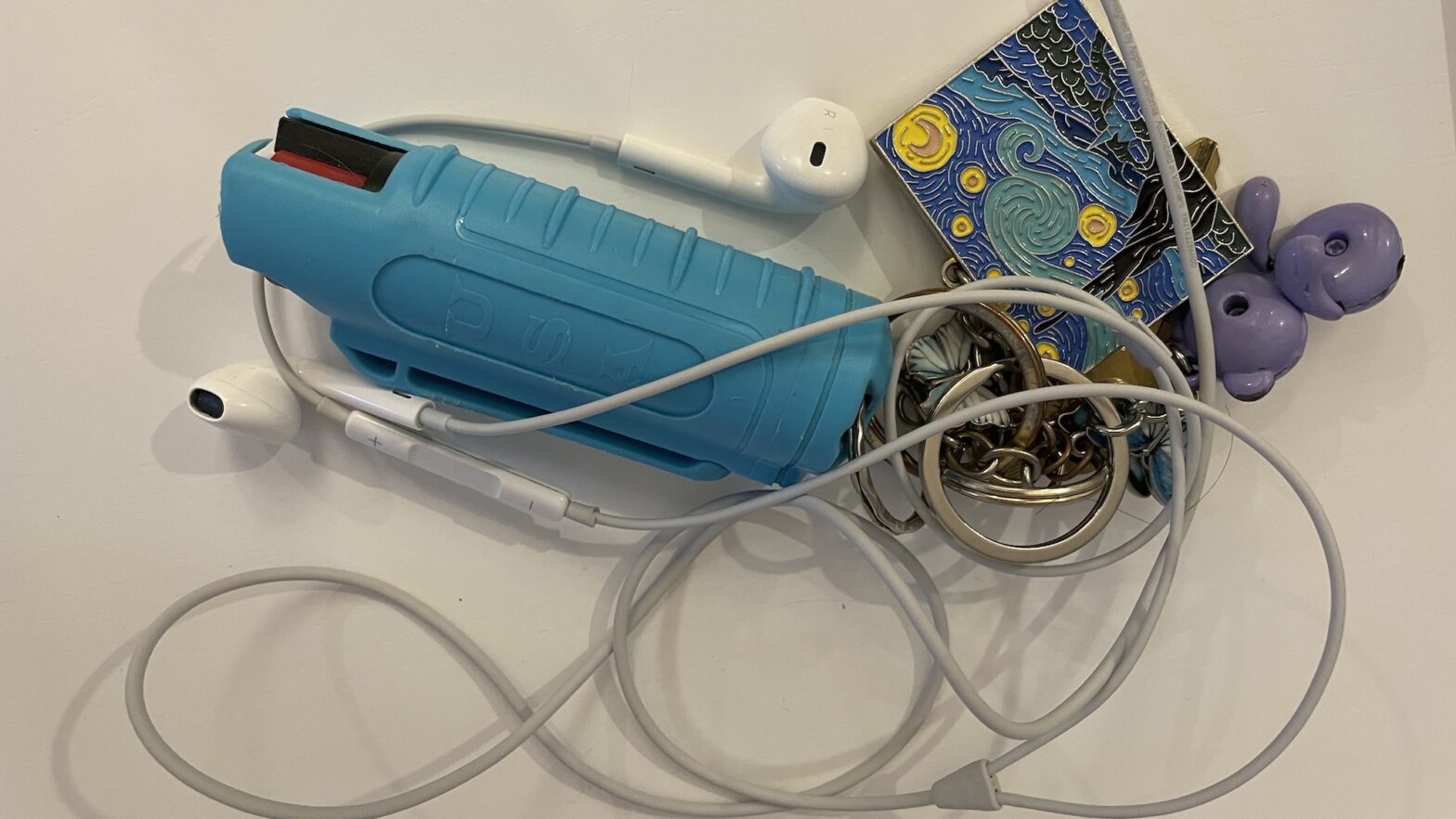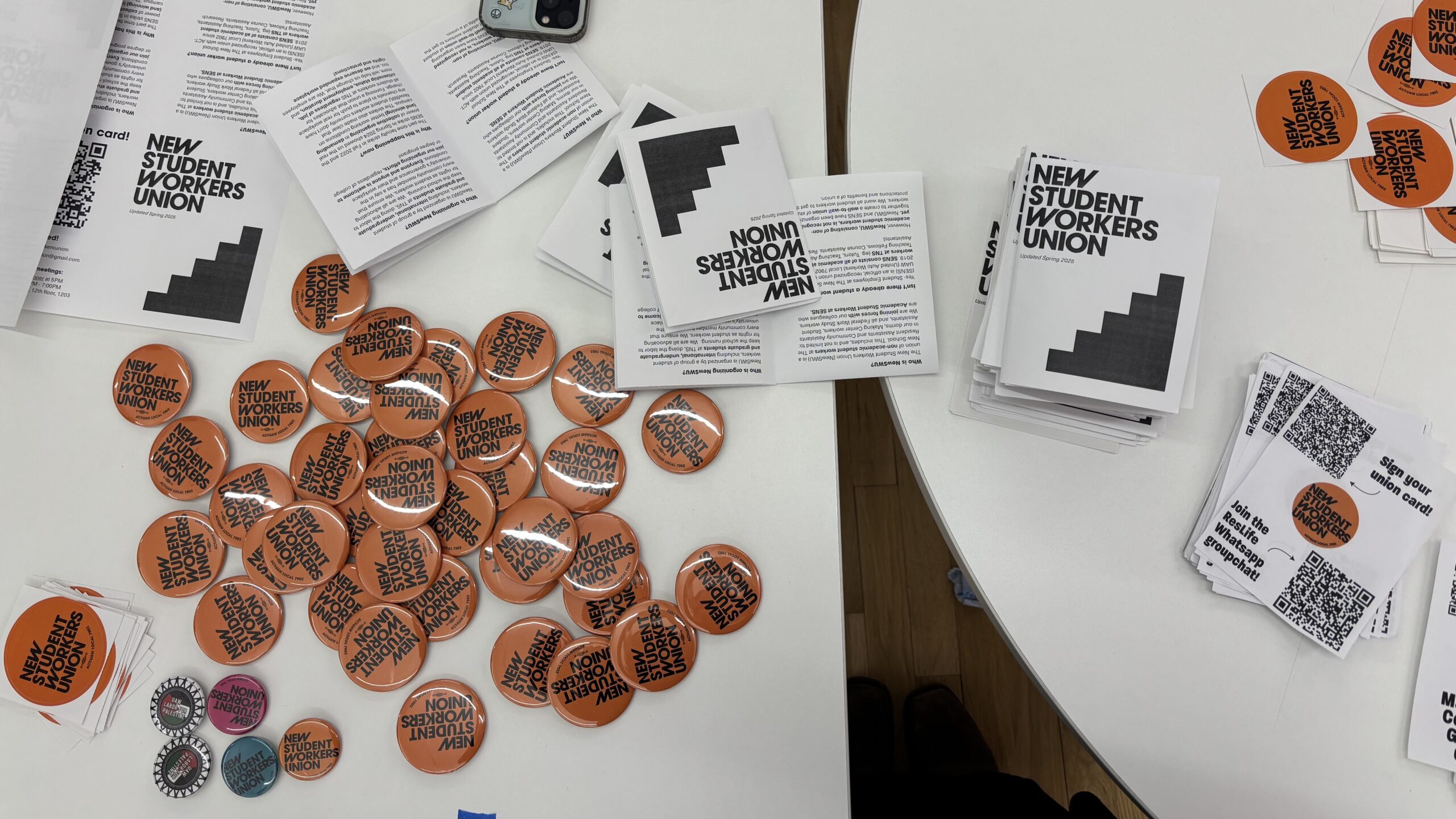No matter the precautions you take, safety is never a guarantee when you’re a woman traveling home alone at night.
Ever since I was a pre-teen, I’ve been obsessed with having my earphones in when I walk — obsessed with pretending my life was a music video just to get me from point A to point B. Sometimes that was just for my own entertainment, and at other times it was a way for me to escape reality, especially as I got older.
The first time I realized the power of hiding behind my earphones was when I was 13. I was on vacation in a small town in my native Argentina, taking some time alone to walk around during the sunset. I knew my parents were nearby, but being totally alone as a young girl made my anxiety begin to tick. For the first time, I felt people staring. I was well aware of some of the terrible things that could happen to me simply for existing as a female, and I speed-walked back to my parent’s room with my music on full blast. Shutting the door behind me, I spoke? with my mom and expressed how frustrated I felt that I had to be aware; to be scared at all times in order to make it home safely as a girl.
For years, my mom has warned me against walking outside with earphones in. Although I have fought her on it, she isn’t totally wrong — it’s easy to lose yourself in your music and not pay attention to what’s happening around you. And for girls, this could be potentially dangerous. You need to pay attention, notice if someone is staring a little too long, or walking a little too closely behind you.
So, the other day, while running late to an event, I didn’t have my earphones in for once. I was wearing a nice outfit, and in the back of my head, I knew I had to be aware of my surroundings. I was also in heels and knew that, if anything happened, I wouldn’t be able to make a speedy getaway. I needed to be aware, just in case, so that I could have the time to react. Because of this, I didn’t take the time to untangle them and put them in while waiting outside of my apartment for an available taxi to come by.
I was outside of my building for less than five minutes by the time I relearned the lesson 13-year-old me had learned long ago.
Without my earphones blocking the noise, I was suddenly aware of the snarky comments made by men who walked by. I was catcalled – two men made comments about me as if I wasn’t there, as if I wasn’t a person who could hear them, who knew what they were saying. One of them tried to grab my attention while the other egged him on, and these two men (who seemed to just be strangers to each other) laughed while talking about grabbing my attention. This whole time, I realized I didn’t have my protective bubble on. Usually, my earphones not only comfort me, but I realized then that they truly equip me with an extra layer of safety — if they had thought I couldn’t hear them, then I might have felt more comfortable acting aloof. Instead, I stood on my street petrified, reviewing my game plan to get away in case they became angry that I was outwardly ignoring them and wouldn’t leave. I panicked while thinking:
“So if I walk outside with my music plugged in, then I’m susceptible to being catcalled or worse because people think I’m not paying attention. But if I don’t wear them, then it could be just as difficult, as well as potentially dangerous, to ignore them. Great.”
After a series of unfortunate events that night, many of them surrounding the fact that I was a nicely dressed woman out at night, I came home in tears. While in my anguish, I cried out softly into a mascara-stained pillow:
“I’m tired of having to be careful all of the time.”
When I moved to New York at 18, I quickly learned that I needed a game plan in order to stay safe every time I left my house. I leave with pepper spray attached to my keychain and the knowledge that my friends have my location at all times. But of course, that’s not nearly enough to protect you from a world that will go to any lengths to protect men, to exculpate them from blame whenever a woman, or any femme-presenting person, does not make it home safely. Instead, the world chooses time and time again to blame us for the crap that is bestowed upon us, consistently finding ways to say that it was our fault for “not being careful enough.”
The catch is that no one will ever tell you what the hell that means.
Say you’ve gone out with your friends. It’s late, you want to go home. Of course, it’s always better to travel with someone. But in the case where no one lives in your direction, and you absolutely have to get home alone, what are your options?
Well, you can take the subway back. But watch out for sketchy-looking strangers who might push you onto the tracks or chase you if they so well feel like it. Well don’t fear, the New York Police Department’s here! Unless you’re a person of color… then you will likely be ignored.
But, if you do decide to take it at night — because it’s convenient and you don’t want to spend $20+ on an Uber or taxi — and you are attacked, I guarantee you people will listen to your story and say, “Why would they ever take the subway alone at night?”
So, perhaps having read the endless news stories about violent attacks on the subway, you might decide to opt-out of the subway. What’s the next option?
Uber, you might think. Safe bet — the app gives you a license plate to check the vehicle you get into and some general information on the person to make you feel safe. You have the option of sharing your location with someone while riding, and there are emergency numbers to contact if you are in danger. But at the end of the day, you’re getting into a stranger’s car late at night, hoping to God they turn on all the right streets. You’ll sit in the car and watch carefully which streets they go down, your phone open to the number of a trusted friend just in case. Keep your eyes on the door, and always be prepared to jump if anything goes down. If you sense danger, don’t act scared; they’ll lock the door. Just calmly prepare to jump out of a moving car and run for your life. And if anything happens, don’t forget that someone will tell you that that was a stupid way to go home. You should never be alone in an Uber, someone will say.
You can always walk, but of course, that’s its own issue. If you have to, you walk quickly. Don’t make too much eye contact with strangers. Keep your pepper spray available. Avoid dark streets and sketchy-looking corners. Ignore catcalls, no matter how repetitive and infuriating they may be. If someone does call out to you, make sure to check they aren’t following you. Never walk too fast, and if someone is following you, find somewhere to hide out but don’t make it obvious you know, and don’t run. Never run.
With all of these rules, you may be asking, how can women stay safe? What are the “smart” ways to make it home safely? The truth is, there are none. There is no way of getting home at night that will guarantee your safety. There is always a chance you could end up as just another story in the news that someone will look at the next morning and think “Well they should’ve done X, or they should’ve avoided Y. They shouldn’t have worn this, they shouldn’t have walked there.”
But that right there, is where we should start. The minute we stop blaming women and femme presenting people for the injustices that happen to them at the hands of men is the minute we start empathizing with the victims, instead of simply treating them as cautionary tales.
More than anything, men must be held accountable for their actions, not only by women but by men as well, including when they do something that may seem common or harmless, like a comment about what someone is wearing. Breaking the toxicity from the source and holding people accountable on all levels of misogyny is how we can begin to keep each other safe on a more fundamental level.








Leave a Reply